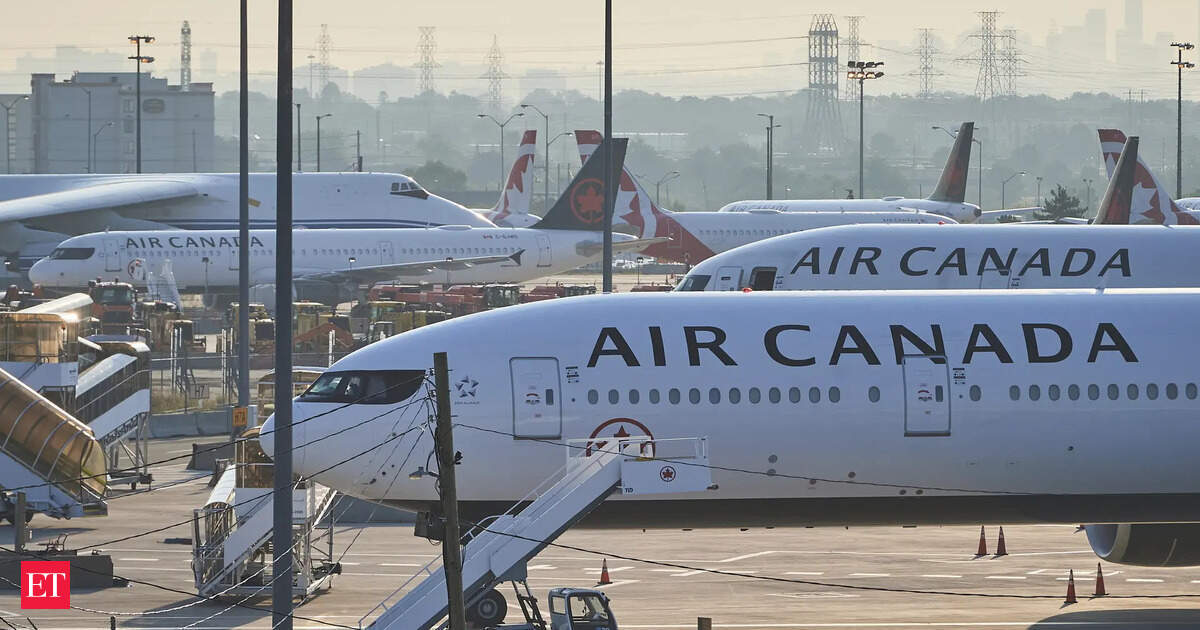Canadian Union of Public Employees (CUPE) spokesman Hugh Pouliot confirmed the walkout, saying it followed failed efforts to secure a deal. “We’re here to bargain a deal, not to go on strike,” Pouliot said, adding that Air Canada had not responded to the union’s two most recent proposals since Tuesday.
By Friday night, 623 flights had already been cancelled, affecting more than 100,000 people, according to figures cited by AFP. The airline operates around 700 flights daily, and the shutdown is now impacting roughly 130,000 passengers each day, including an estimated 25,000 Canadians abroad.
Union rejects arbitrationThe strike escalated after CUPE refused Air Canada’s request to enter government-directed arbitration, a move that would have removed its right to strike and handed the decision to a mediator.
Air Canada argued its offer of a 38% increase in total compensation over four years, including benefits and pensions, “would have made our flight attendants the best compensated in Canada.” A senior flight attendant, under this plan, would earn about C$87,000 by 2027.
The union, however, rejected the deal, calling it “below inflation and below market value.” CUPE is also demanding pay for ground duties such as boarding, which remain unpaid. The practice is common in the airline industry, but union leaders argue it is unfair.Government and business leaders step inFederal Jobs Minister Patty Hajdu met both sides late Friday and urged them to break the stalemate. “It is unacceptable that such little progress has been made. Canadians are counting on both parties to put forward their best efforts,” she said in a statement.The Business Council of Canada has pressed the government to impose binding arbitration. Its chief executive, Goldy Hyder, warned: “At a time when Canada is dealing with unprecedented pressures on our critical economic supply chains, the disruption of national air passenger travel and cargo transport services would cause immediate and extensive harm to all Canadians.”The standoff mirrors government intervention in 2023, when Canada’s two largest railroads were forced into arbitration during a strike, a decision now being legally challenged by the railway union.Travellers stranded in peak summer seasonThe strike has left thousands scrambling for alternatives. Canada’s geography adds to the strain: in a country of vast distances, flying is often the only option.
Montreal resident Alex Laroche, 21, said he and his girlfriend had saved since Christmas for an $8,000 European holiday. With non-refundable bookings and a Saturday night flight to Nice at stake, their plans now hang in the balance. “At this point, it’s just a waiting game,” Laroche told reporters.
He admitted he was initially frustrated with the strike but changed his view after learning more about the wage dispute. “Their wage is barely livable,” he said.
Air Canada says affected passengers can apply for full refunds via its website or app. It has promised to arrange alternative flights with other carriers when possible, though it cautioned that “due to the summer travel peak” many seats are already sold out.
Laroche said he considered booking with another airline, but prices had soared. “Most of them are nearly full and cost more than double the $3,000 we paid for our original tickets.”
India routes disruptedThe disruption has reached India-bound services, with direct flights from Toronto, Vancouver and Montreal to New Delhi cancelled. Connecting services from Calgary via London were also affected.
Travel agents say some relief may come through Air Canada’s membership in the Star Alliance, which includes Air India. “They are being moved to other routes, they will be protected by arrangements with other airlines. But some impact will be there,” said Vibhor Chhabra, director of Toronto-based Grand Travel.
Even before the strike officially began, Air Canada had started cancelling long-haul services. In a post on Thursday, it said the union had rejected a temporary agreement to allow stranded passengers to return from overseas. “As a result, 25,000 additional passengers are going to be stranded abroad,” the airline posted.
Air Canada normally runs daily flights to New Delhi, Mumbai, Hyderabad, Amritsar, Ahmedabad, Chennai and Kochi from Toronto, Montreal, Vancouver and Calgary.
What lies aheadAir Canada’s chief operating officer Mark Nasr has warned that even once a deal is reached, it could take up to a week to restore full operations. With a fleet of 259 aircraft and flights to 180 cities across 64 countries, the impact of the shutdown is vast.
Industry experts believe neither side can afford a long stoppage. Rafael Gomez, director of the University of Toronto’s Centre for Industrial Relations, told AFP that while unpaid pre-flight work is a common issue worldwide, CUPE has effectively presented it as one of fairness. He added, “That’s a very good issue to highlight.”
He also suggested the strike would not last long. “This is peak season. The airline does not want to lose hundreds of millions of dollars in revenue… They’re almost playing chicken with the flight attendants.”
For now, passengers remain caught in the middle, their plans upended and their patience tested, as one of the busiest travel seasons in years grinds to a halt.

